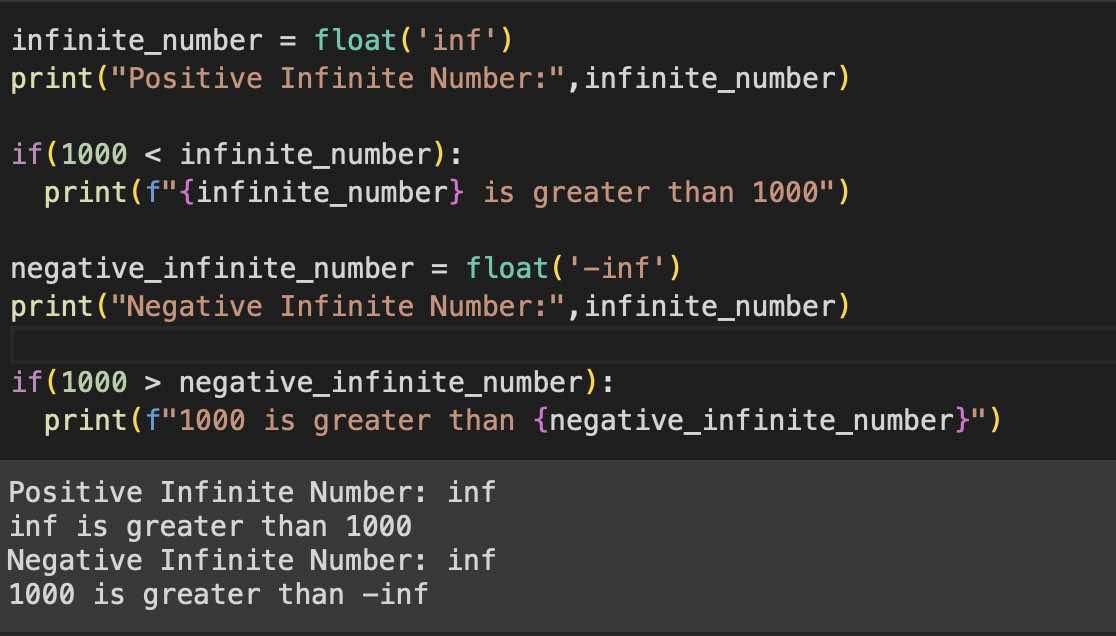You can define an infinite number in Python as follows,
infinite_number = float('inf')Let's print it out.
print(infinite_number)infExample:
>>> infinite_number = float('inf')
>>> print("Positive Infinite Number:",infinite_number)
Positive Infinite Number: inf
>>>
>>> if(1000 < infinite_number):
... print(f"{infinite_number} is greater than 1000")
...
inf is greater than 1000
>>> negative_infinite_number = float('-inf')
>>> print("Negative Infinite Number:",infinite_number)
Negative Infinite Number: inf
>>>
>>> if(1000 > negative_infinite_number):
... print(f"1000 is greater than {negative_infinite_number}")
...
1000 is greater than -inf
>>> 
Facing issues? Have Questions? Post them here! I am happy to answer!
Author Info:
Rakesh (He/Him) has over 14+ years of experience in Web and Application development. He is the author of insightful How-To articles for Code2care.
Follow him on: X
You can also reach out to him via e-mail: rakesh@code2care.org
More Posts related to Python,
- How to convert int to ASCII in Python
- How to make use of SQLite Module in Python?
- Split a String into Sub-string and Parse in Python
- Python: Pandas Rename Columns with List Example
- How to run Python file from Mac Terminal
- How to Exit a Loop in Python Code
- Python: How to Plot a Histogram using Matplotlib and data as list
- MD5 Hashing in Python
- Jupyter: Safari Cant Connect to the Server localhost:8888/tree
- Fix: AttributeError: str object has no attribute decode. Did you mean: encode?[Python]
- How to Read a binary File with Python
- How to add two float numbers in Python
- Python: How to install YAML Package
- Python: How to Save Image from URL
- What is Markdown in Jupyter Notebook with Examples
- How to change the Python Default version
- 33: Python Program to send an email vid GMail
- How to comment code in Python
- How to Fix AttributeError in Python
- Fix: error: Jupyter command `jupyter-nbconvert` not found [VSCode]
- How to comment out a block of code in Python
- List of All 35 Reserved Keywords in Python Programming Language 3.11
- Import Other Python Files Examples
- Python: How to add Progress Bar in Console with Examples
- 3 Ways to convert bytes to String in Python
More Posts:
- Copy Mac Screenshot in Clipboard instead of a png file - MacOS
- Only Chessboard using HTML and CSS Code Example - CSS
- How to Update Safari on Mac to the Latest Version [macOS] - MacOS
- How to Download Apple Vision Pro visionOS Simulator on Xcode 15 - Apple
- How to Provide Full Disk Access to App on Mac - MacOS
- Find Mac version using terminal command - MacOS
- Install Eclipse IDE on M1/M2 Mac Natively - Eclipse
- Fix - Unsupported major.minor version 65.0 (Java JDK 21) - Java-JDK-21